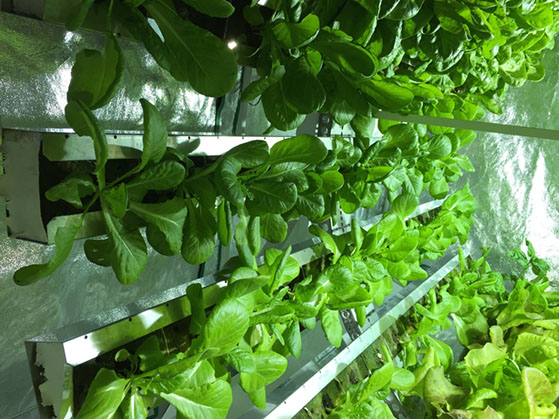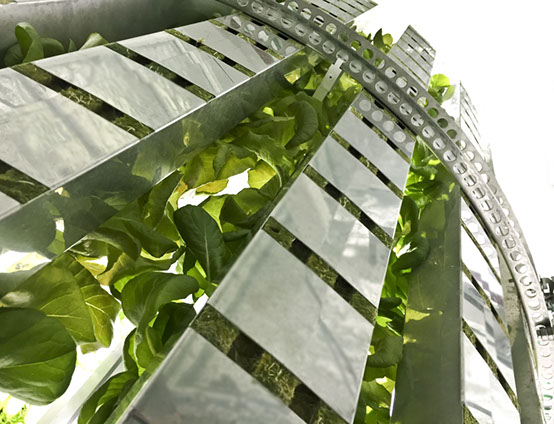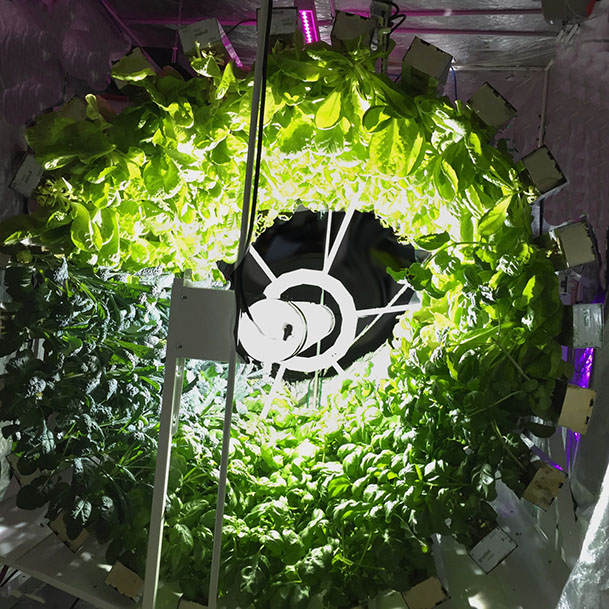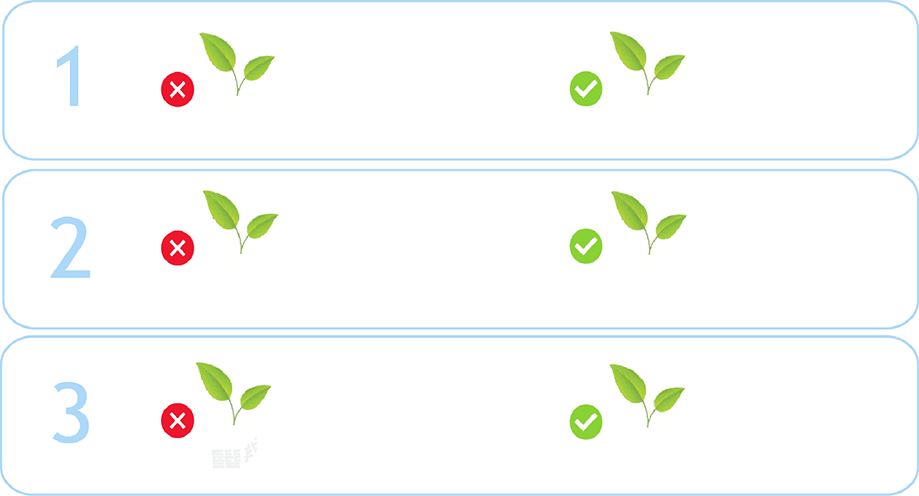

The drip principle prevents the excessive watering of the plants and allows a better oxygenation.
Better oxygenation and little accumulation of residual salts ensures a maximum growth.
This principle brings less unnecessary moisture, which prevents the spread of insect pests and diseases.

The Gigrow operates a patented drop-by-drop principle with no recirculation of liquids, which makes it environmentally green.
It accurately injects into each cube, the amount of required liquid fertilizer when the plant is reversed, thus reducing the amount of liquid needed for the culture.
Each slab is an independent garden thus preventing the spread of disease.
The tiles are made of stainless steel releasing no contaminant.
The liquids are kept in a covered container out of light therefore no algae may develop inside.

Simply ingenious!

Significantly less effort needed to adjust the pH and PPM level in the covered pool since the liquid does not recirculate.
Light from a bulb is directed straight towards the plants avoiding any reflection to increase the photosynthesis.
Heat is removed by a glass tube, which limits plant drying and burning the extremities of the leaves.
This system allows to grow plants up to a maturity of 18 '', to grow all kinds of plants; kale, basil, salad, herbs, niche crops, edible flowers etc ...
Being very autonomous, the Gigrow is easy to use.
Growing crops by flooding vs rotary injection
Farming by rotary flooding**
Gigrow farming by rotary injection

20 ml or less of residues
Highly oxygenated cube due to the small amount of fertilizer injected.
Direct water draining from the cube due to the rotation.
Rich in oxygen. Little residual liquid spreads inside the cube by rotation.
Small amounts of water are evacuated from the cube making it is poor in oxygen. Drying the cube is difficult and time consuming.
Rich in oxygen, very little salt deposit. Quick oxygenation of the roots. Improved growth. Automated and more frequent watering.
Once the long process of drying is over the plant starts receiving oxygen at the roots. However due to the salts deposit, the cubes must be abundantly rinsed wich leads to the contamination of the fertiliser present in the circuit.
530 ml of liquid
Small quantities of liquid.
330 ml of excess liquid not absorbed by the plant.
High salt deposit
Very little salt deposit.
**Farming by flooding is much less eco friendly. It requires large quantities of liquids that are eventually wasted. It daily creates large amount of fertiliser waist, which are harmful to the environment.
2018 all rights reserved
